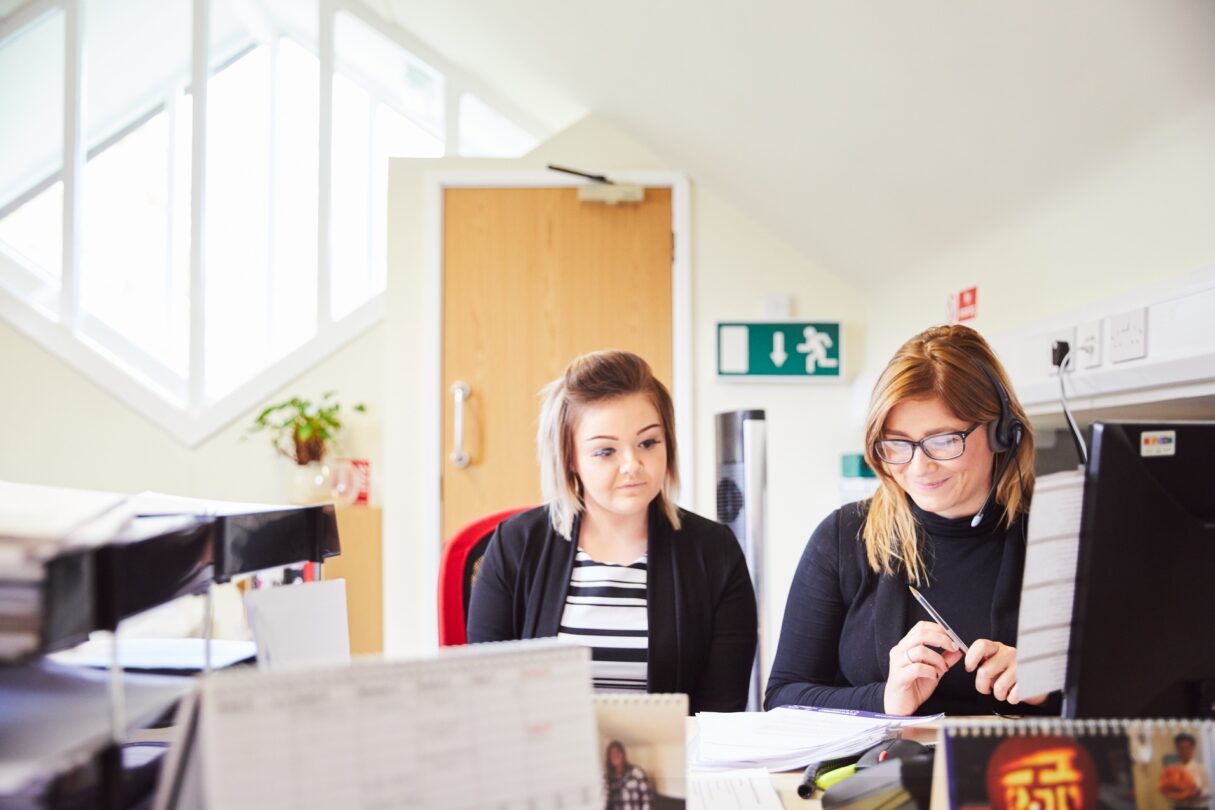Mentors and accountants: How to find the right people to help start and grow your small business
Discover how mentors and accountants can help you take the right steps as you start and build your business.

Most of us have no problem talking. We can talk for hours among friends about things we’re interested in or that affect us.
But for aspiring business owners, recent research says confiding in someone about their idea can be surprisingly difficult.
Yet there’s so much to be gained from talking to the right people: mentors who are experts in their field, for example, or professionals such as accountants.
Here’s what we cover in this article:
Final thoughts: You don’t need to go it alone
My idea is just too silly
Together with The Entrepreneurs Network, Sage spoke to 705 people in disadvantaged areas of London and Newcastle who are open to the idea of starting a small business, along with 497 small-to-medium-sized enterprises (SMEs) in those areas.
The survey, Knocking Down Barriers, found that some potential independent earners are reluctant to voice their idea because they fear it would be seen as too silly (15% of respondents). Others didn’t want to take up other people’s time explaining their idea (20%).
Does this sound familiar?
Almost two thirds (58%) of potential earners in our survey knew somebody who they felt they could turn to for advice – but fewer than half had actually done so.
In contrast, the established business owners spoken to in the survey had come to value mentors: 73% of SME decision-makers had access to a mentor. More than half of them took advantage of the opportunity to receive advice.
How to get over the hump
So, how do you find the bravery to externalise your ideas and find a mentor?
It’s not just about benefiting from their wisdom. It’s about tapping into their enthusiasm and passion. This can be incredibly empowering. A good conversation with somebody can be the spark to the dynamite of your business idea.
It’s helpful to split sources of advice and mentorship into two distinct areas.
- Sources you’re close to – such as friends and family.
- Third parties – people or organisations who you don’t have a direct connection with.
Autumn Rabbitts is the owner of Plumb and Rabbitts Cake Studio, a small business that specialises in bespoke luxury cakes.
A random phone call from the government led her to speak to somebody at the North East Growth Hub.
She explains: “He spent four or five hours on the phone with me telling me about funding – about what I could go for, and about start-up loans.
“Just absolutely incredible.
“It was that one person, almost that one phone call, that changed everything and made me realise that opening my own patisserie was doable and I could get help to do it.”
In the survey, the top source of advice or inspiration listed by potential earners was family and friends (42%). But this was closely followed by government websites (39%).
The UK government has been building a strong culture of entrepreneurship, so this kind of advice from official sources has been made more accessible in recent years.
You’ll probably find that your local authority offers advice for free.
How accountants can help
Another source of expert, third-party mentorship is an accountant.
Modern accountants are more than number crunchers or someone you call on once a year when your taxes are due.
Accountants have vast experience of business. They’ve seen businesses of all kinds come and go and are knowledgeable in the common pitfalls and how to plan for success.
They can help you transform your raw idea into an actual business and help you to scale it.
Want to sell online? They can guide you on the VAT requirements.
Want to take on staff? Most accountants know all about how to run a payroll – and get it right.
Need new equipment or premises? They’ll know how to do that too in the way that’ll cost you least – and again they’re likely to know if there are sources of funding you can use.
Autumn’s accountant was recommended to her by another entrepreneur. This provided a lesson about how to find good sources of help.
She says: “I think the best thing to do is find another business local to you and ask them who’s good.
“Word of mouth is absolutely paramount in terms of finding good suppliers and people who can help you… because then you know how someone works, you know how they operate, you know if they’ve been useful or not for people in the same situation as you.”
Final thoughts: You don’t need to go it alone
Beyond ensuring branding and products are on point, Autumn’s advice is to find an accountant to guide you on how to build revenues and profits.
She says: “Hire a bookkeeper or an accountant as soon as you start having money or paying for a package to take care of it for you.
“If you don’t, then it is a real slippery slope, and it’s going to be hard to manage your ingoings and outgoings and understanding what is profit and what isn’t profit.”
It’s the strength of your idea, and the work you put in that will turn an idea into reality.
But to get there, you’ll need help.
More than this, you’ll need to trust others and make use of their experience. Mentors and accountants are just a couple of examples.
Part of the skill of creating a business is developing a kind of radar that means you can identify those who are in a position to help – and having the bravery to be able to do so.
Side hustle toolkit
Get your free guide, business plan template and cash flow forecast template to help you boss your side hustle and achieve your goals.






